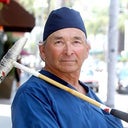Rhinoplasty and Soft or Hard Cartilage - How Can You Tell?
In the context of rhinoplasty, do you need to be examined by a surgeon in order to determine if you have soft or hard cartilage? Since it seems that this is a big factor in what sort of results one can get with a nose job, I was wondering if there's a way for people at home to gauge the type of cartilage they have? Thank you!










